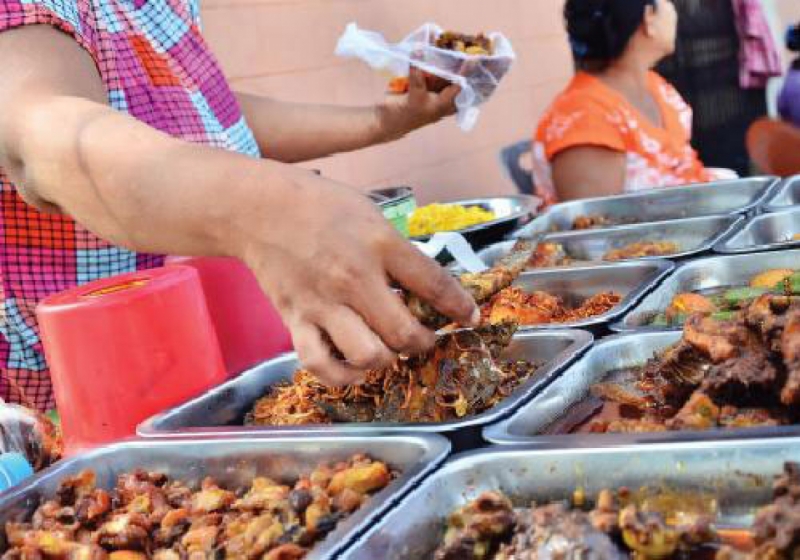




Disarray among authorities and inexperience among producers, as well as a reluctance to pay taxes, is putting the quality of locally produced foodstuffs and the reputation of Myanmar’s exported goods at risk.
Responsibility for the production and monitoring of food quality is shared between the Ministry of Health’s Food and Drug Administration (FDA), the ministries of industry and commerce, and local authorities.
Officials say policies and standards are not harmonised, management practices vary, and awareness of good food practices is limited. As a result, small domestic producers competing for market share often sell sub-standard wares and neglect good manufacturing practices.
Ko San Oo owns a small bakery in Yangon’s East Dagon township. Three years ago he started baking and distributing bread and cakes, with a distribution licence and a health certificate from Yangon City Development Committee. But he never applied for a business licence.
“I can’t afford to pay the extra taxes, so I deal only with the municipal authorities. I wouldn’t mind getting a certificate of good manufacturing practice from the FDA, but I don’t know how,” he said, adding that he believed around one-third of domestic food producers lacked a business licence.
The FDA aims to ensure the safety and quality of food and drugs, through issuing certificates and recommendations.
According to the FDA, hundreds of medium and larger local companies hold an FDA Good Manufacturing Practices certificate.
Ko San Oo said he feared being blacklisted by the FDA if his products failed a quality test.
“I don’t know if my bread meets standards of good quality or not. I bought the bakery machinery and taught my employees how to make bread and cakes, then I went into business,” he said.
Food production and quality standards have assumed fresh importance, since preparations began for Myanmar’s entry into the ASEAN economic community, according to a recent Ministry of Information announcement.
The Ministry of Health has already issued warnings to domestic producers. Some of them adhere to international food safety standards, but others use chemical preservatives and dyes that are not approved and could risk consumers’ health.
In Mandalay, regional authorities ordered water bottling companies to apply for GMP certificates and municipal business licences after closing down 10 drinking water companies in January.
Daw Khin Saw Hla, director at the FDA, told The Myanmar Times, “These companies are vying for market share. Some do consult the FDA for advice on standards, but they have very little knowledge of good management practices.”
A stronger commitment to higher quality would help local companies withstand pressure from imported products from other ASEAN countries, which are threatening to reduce their market share, she said.
“Poor quality control results in substandard goods and low export quality,” she said, adding that this has affected the country’s international reputation.